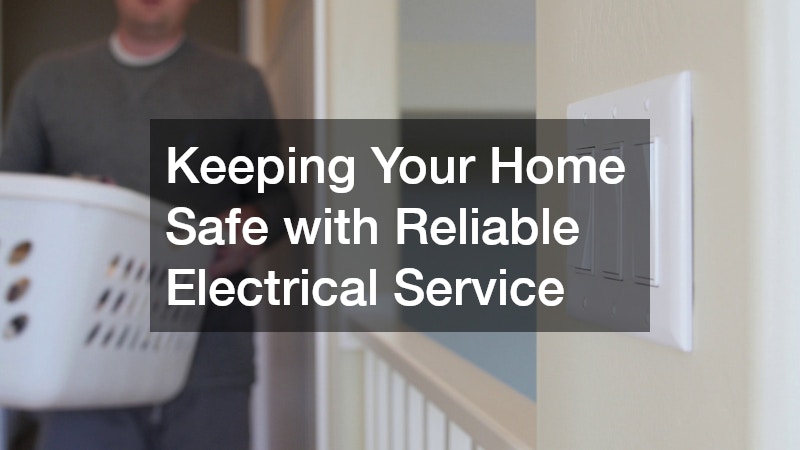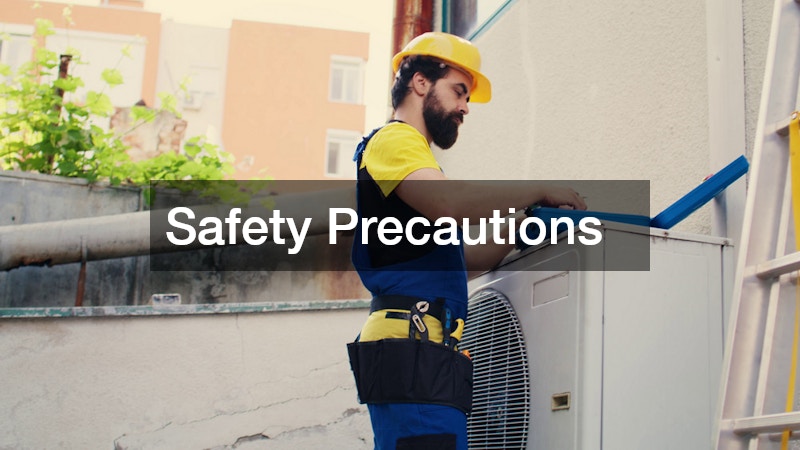
Keeping Your Home Safe with Reliable Electrical Service
Ensuring your home’s safety starts with a reliable electrical system. Electricity is fundamental to everyday life, powering everything from kitchen appliances to home entertainment systems. By prioritizing electrical safety, homeowners can enjoy a more secure and efficient living environment.
Unexpected power outages, electrical fires, and shock hazards can be minimized with proper precautions. Regular inspections, system upgrades, and implementing protective devices are crucial steps in safeguarding your home.
Maintaining electrical safety not only protects property but also enhances family well-being.
Regular Inspections and Maintenance
Annual electrical inspections by a certified electrician are vital for home safety. Inspections help identify potential hazards, such as loose wiring or faulty connections, that can lead to dangerous situations. Ensuring compliance with safety standards reduces risks and enhances system reliability.
Neglecting regular maintenance can result in costly repairs and potential safety hazards. Regular check-ups allow for early detection and correction of problems, preventing emergencies. Simple maintenance tasks, like checking outlets and switches, can significantly improve safety.
Upgrading Outdated Wiring
Old wiring systems, such as aluminum wiring or knob-and-tube, pose significant risks. These older materials can overheat, become brittle, and fail, potentially leading to fires. Upgrading to modern copper wiring enhances safety and efficiency.
Modern wiring materials have better conductive properties and are less prone to corrosion. Copper wiring has become the standard due to its reliability and ability to handle higher electrical loads. Transitioning to updated wiring systems ensures compliance with today’s safety standards.
Implementing Protective Devices
Protective devices like circuit breakers, GFCIs, and surge protectors play a crucial role in home safety. Circuit breakers automatically cut power to prevent overloads, reducing the risk of fires. GFCIs are essential for preventing electrical shocks, especially in moist environments like bathrooms and kitchens.
Surge protectors defend against voltage spikes that can damage electronics and appliances. Installing these devices is a simple yet effective method to safeguard your home against various electrical risks. Understanding the function and importance of each device encourages proactive protection measures.
Overloaded Circuits
Overloading circuits is a common household hazard that can lead to overheating and fires. Proper load management and circuit design are essential to prevent this risk. Homeowners should be educated on the capacity of their circuits and avoid connecting too many devices to a single circuit.
Identifying circuits at risk of overload involves checking for frequently tripped breakers or flickering lights. These signs indicate that a circuit is handling more electricity than it can safely manage. Consulting with a professional to assess and redesign overloaded circuits is prudent.
Faulty Appliances
Faulty or damaged appliances are a significant source of electrical hazards. These appliances can malfunction, leading to shocks, fires, or further system damage. Regularly checking and maintaining appliances helps identify potential issues early.
Replacing damaged or malfunctioning appliances promptly is crucial for safety. Ignoring appliance issues can result in dangerous situations, including electrical fires. Well-maintained appliances not only perform better but also contribute to a safer living environment.
Inadequate Grounding
Proper grounding in an electrical system is crucial to prevent shocks and surges. It provides a path for excess electricity, helping to avoid potential hazards. Ensuring your home’s electrical grounding meets current standards is a vital safety measure.
Inadequate grounding can expose inhabitants to electrical shock and damage electrical systems. Grounding issues often stem from outdated systems, making upgrades necessary. Homeowners should regularly verify that their grounding systems are in compliance.
Safety Precautions
Taking immediate safety measures during a power outage can prevent accidents and damage. Unplugging devices and turning off appliances helps protect them when power restores. Using flashlights instead of candles reduces fire risk during outages.
Keeping refrigerators and freezers closed preserves food, preventing spoilage during outages. Educating the household on safety measures creates a more secure response to power interruptions. Avoiding downed power lines and reporting them enhances personal and community safety.
Using Backup Power Sources
Backup power sources are crucial for maintaining safety and comfort during outages. Generators and uninterruptible power supplies (UPS) offer temporary power solutions. Selecting the right backup power source depends on household needs and budget.
Generators require periodic maintenance to ensure they function properly when needed. Proper installation and operation of backup power sources are necessary to avoid carbon monoxide poisoning. Homeowners should consult professionals when purchasing and setting up backup systems.
Communication and Information
Staying informed during a power outage is vital for safety and planning. Battery-powered radios are essential for receiving updates from authorities. Efficient communication with utility providers can expedite restoration timelines.
Family communication plans ensure consistent and reliable contact during emergencies. Establishing meeting points and sharing emergency contacts fosters preparedness. Coordinating with neighbors can create a support network during extended outages.
This article emphasized the importance of addressing common electrical hazards and implementing safety practices. Regularly evaluating and updating electrical systems ensures compliance with modern standards. Trustworthy electrical services and precautions are vital in preventing electrical mishaps.
Ultimately, investing in electrical safety reflects a commitment to family well-being and property protection. Encourage systematic action through professional guidance and informed decisions. Achieving a safe home begins with understanding and applying electrical safety principles.




